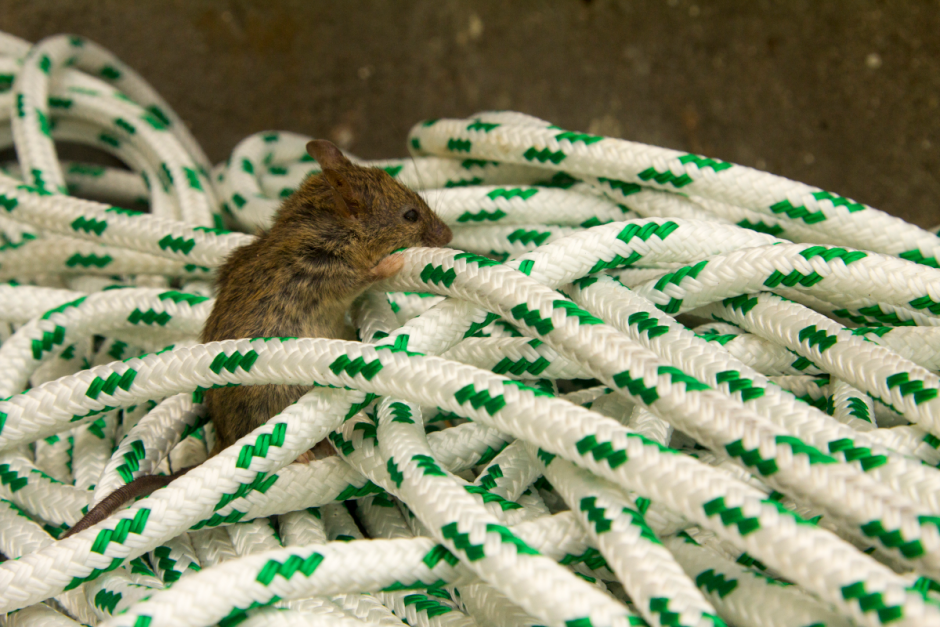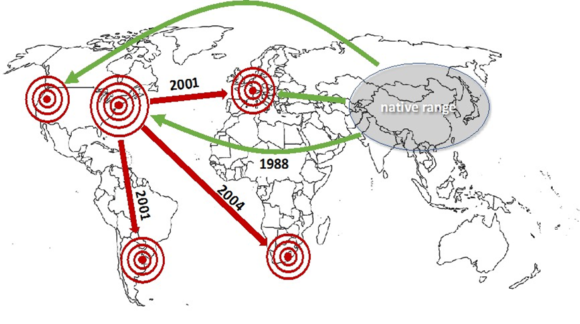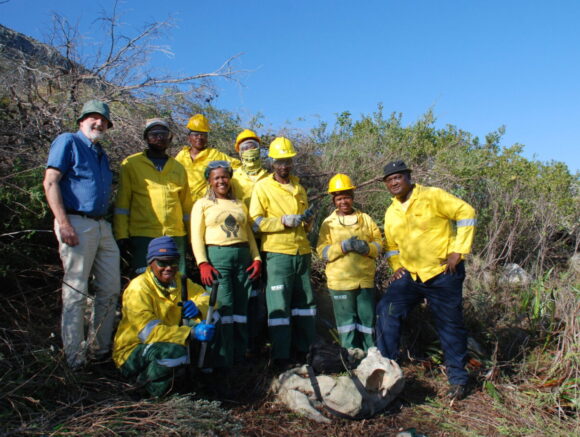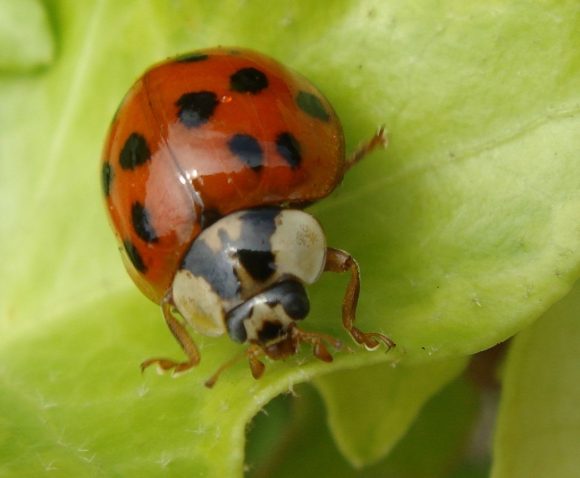Alien species contribute significantly to future biodiversity loss
An increase of 20 to 30 percent in the number of invasive alien species will lead to dramatic biodiversity loss worldwide. This is one conclusion of a study by an international team of researchers led by C·I·B associate Franz Essl that was published in the journal Global Change Biology.
Human activities are intentionally and accidentally introducing more and more species to all parts of the world, for example through the transport of commodities and tourism. Some of these alien species have dramatically negative consequences for biodiversity and human well-being, for example by displacing native species or transmitting diseases. However, while we have relatively good information on the historical spread of alien species, understanding how patterns are changing is challenging.
Dramatic loss of biodiversity
“At the moment we cannot generate precise predictions based on computer models to forecast how the spread and impact of alien species will change in the future. Therefore, we turned to expert assessments using standardized surveys for insights on the causes and consequences of the spread and impact of alien species for the coming decades,” says Essl. The study shows that an increase of 20 to 30 percent in the number of newly introduced alien species is considered sufficient to cause massive global biodiversity loss. This scenario is likely to be realized very soon, as the number of introduced species is increasing steadily.
Climate change and trade determine increase in alien species
Humans are the main driver of the spread of alien species. The experts involved in this study identified three main reasons for human-mediated movement of alien species: the increasing global transport of goods, anthropogenic climate change, and economic growth. The study also shows that the spread of alien species can be greatly slowed down by ambitious countermeasures.
The researchers also explored the different ways that changing human activities are affecting invasions in different parts of the world. Tourism is a major driver of biological invasions in tropical and subtropical regions, while in polar and temperate regions, factors associated with climate change are key drivers of changes in the status and extent of invasions.
Politicians have the responsibility to act
Political decision-makers have the responsibility to act to deal with the rapidly growing problems with biological invasions. “The study highlights some options that are available to reduce the future impacts of alien species,” says C·I·B Director Dave Richardson, a co-author of the paper. “The results provide an important foundation for further development of crucial international agreements such as the Sustainable Development Goals that offer a roadmap to reduce the negative impacts of alien species on global biodiversity and human wellbeing.”
The study, involving 38 researchers from across Europe, North and South America, New Zealand and South Africa (including five C·I·B-affiliated researchers and four alumni of the Centre), highlights the need for further study on the subject, with limited quantitative analysis available on how the future spread of alien species might affect global ecosystems.
The Centre for Invasion Biology (C·I·B) is driving research on this topic with a strong emphasis on South Africa and other parts of the continent.
Link to the paper: https://doi.org/10.1111/gcb.15199
For more information, contact Dave Richardson at rich@sun.ac.za




